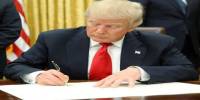Political capital refers to the goodwill, trust, and influence that politicians earn or build-up with the public through the pursuit of policies that people like or respect. It is a metaphor used in political theory to conceptualize the accumulation of resources and power built through relationships, trust, goodwill, and influence between politicians or parties and other stakeholders, such as constituents. Now the most common usage of “political capital” means the power that popularity confers on a politician or something like that. It is then possible to use this goodwill to push through unpopular legislation without severely damaging their support or that of their political party, and also to win elections. Political capital can be understood as a type of currency used to mobilize voters, achieve policy reform, or accomplish other political goals. “Political capital” is shaping up to be the first buzzword of the second Bush administration. Although not a literal form of capital, political capital is often described as a type of credit, or a resource that can be banked, spent or misspent, invested, lost, and saved. This type of capital may also be spent on other politicians, not just members of the public.
Kinds of political capital –
- Representative Capital: This type of capital is built up over the years through experience, seniority, and operating in leadership positions.
Reputational Capital: This kind of political capital is earned by maintaining consistent positions on policy and ideological views.
Some thinkers distinguish between reputational and representative political capital. Reputational capital refers to a politician’s credibility and reliability. The goodwill is a kind of invisible political currency that lawmakers can use to mobilize the electorate or spend on policy reform. This form of capital is accumulated by maintaining consistent policy positions and ideological views. For the long-term success of any politician, political capital is vital – without it, their chances of winning elections or effectively leading the nation during difficult times is virtually impossible. Representative capital refers to a politician’s influence in policy-setting. This form of capital is accumulated through experience, seniority, and serving in leadership positions.
The rule about political capital is when you’ve got it, spend it, because you can’t hold on to it. At the beginning of a leader’s term in power, just after winning elections, they are less concerned about goodwill and political capital. Thus, political capital—reputational and representative—is the product of relationships between opinion (public impressions), policy (legislative rewards/penalties), and political judgment (prudent decision-making).
















